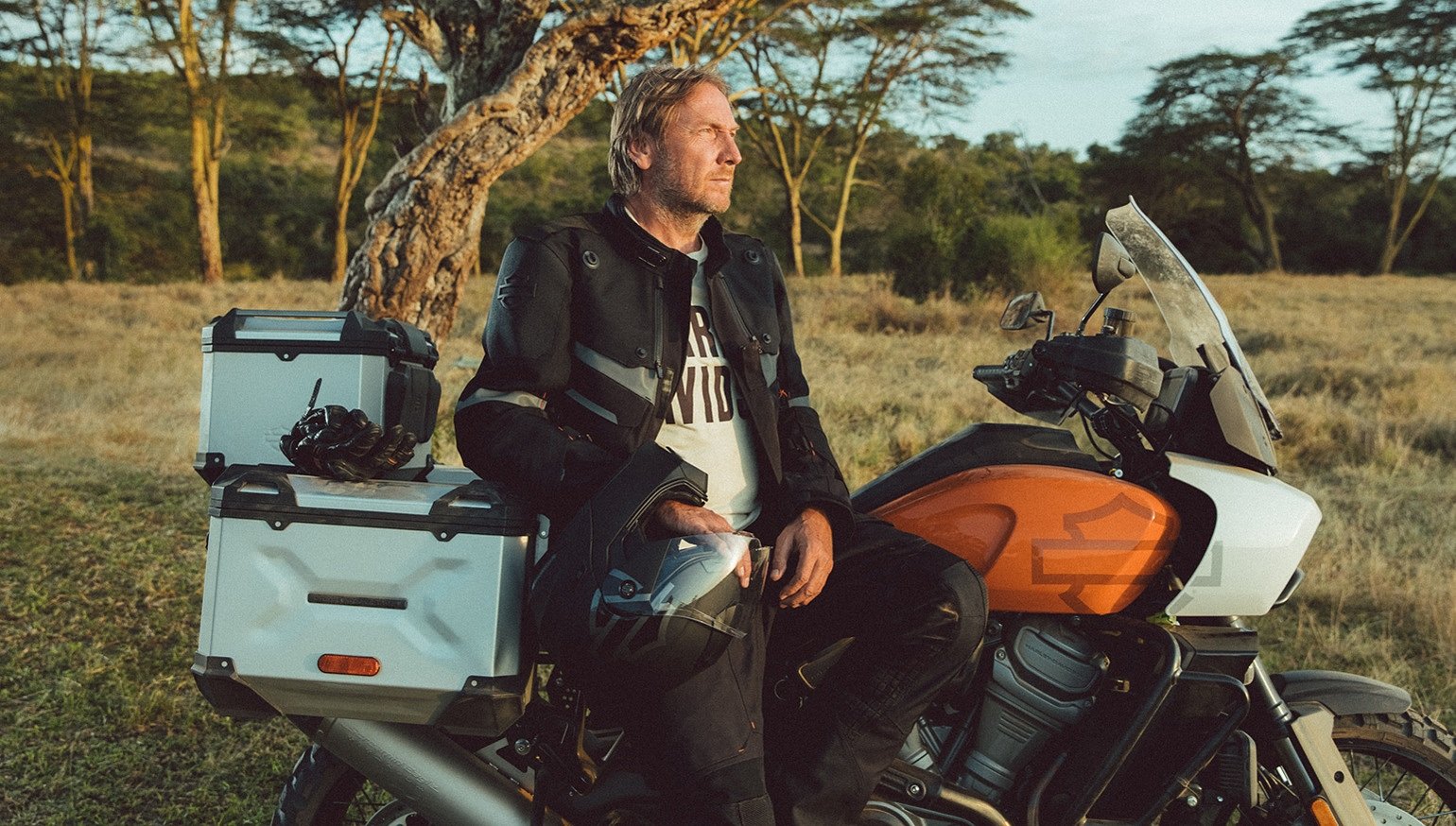The man who altered Harley-Davidson's course by 180 degrees and left an undoubtedly long-lasting mark on the largest U.S. motorcycle manufacturer is retiring.
Harley-Davidson issued a statement yesterday confirming it is searching for a new CEO to replace Jochen Zeitz, who was known for turning around the sportswear company Puma. He joined the board of directors at Harley-Davidson in 2007 and was appointed president and CEO in 2020. The long-term success of the transformational strategy Zeitz laid out, which he called The Hardwire, will ultimately determine how his leadership is judged, but by any measure, Zeitz's five years at the helm have been eventful and full of change.
How Harley-Davidson did a U-turn
Under previous CEO Matt Levatich, who worked at the company for 26 years and was CEO for five, Harley-Davidson pursued a strategy called "More Roads to Harley-Davidson." The focus was on "building riders," not just building motorcycles. The plan involved adding new models, launching initiatives to diversify Harley-Davidson's customer base, and expanding outside the U.S. market with the goal of eventually making half of the company's sales abroad.

In early 2020, the board ousted Levatich and installed Zeitz as acting president and CEO. Less than three months later, Zeitz's appointment was made permanent. He began a transition called The Rewire, followed by The Hardwire strategic plan launched in 2021. In many ways, it was the opposite of "More Roads to Harley-Davidson."
Instead of introducing new models, Zeitz often bragged on the quarterly conference calls with financial analysts about how many models had been trimmed from Harley-Davidson's lineup. Small-volume overseas operations were shuttered. Instead of aiming for bigger unit sales, Zeitz aimed for higher profit margins. Evo Sportsters disappeared and the focus was clearly on what the company calls the Grand American Touring class, its biggest, most expensive models and its limited-edition CVO models. Every presentation by Zeitz used the word "premium" and included the phrase "most desirable brand" at least once, usually more often.
In general, that strategy has played out as intended. Harley-Davidson isn't selling more motorcycles, but its profit per motorcycle is higher. The one part of the strategy that hasn't paid off is the move into electric motorcycles. The company successfully spun off LiveWire as a standalone, publicly traded corporation, but sales have fallen far short of original projections and there is no clear path to profitability.

Three controversies still to be decided
Zeitz has faced his share of detractors. Let me point out just three of the arguments that have been levied against him.
First: His strategy will doom the company. Some of his critics say the focus on expensive motorcycles means Harley-Davidson is making it too hard for new customers to join the family. Without affordable bikes, Harley-Davidson is eventually destined to spiral downward as it can no longer extract more money out of its "core customers," who are aging. Here's the counter argument: People have been saying for decades that Harley's customers are old and will age out of riding. So far, what has happened is that younger riders have aged into Harley-Davidsons at a similar rate. In a recent quarterly financial report, the company noted that the average age of customers financing through Harley-Davidson Financial Services has remained steady in the mid-40s for a decade. And here's the counter-counter argument: Zeitz's focus on selling expensive, profitable, "premium" products has yet to be tested by a recession. Touring motorcycles costing $25,000 and up are a very discretionary purchase. What happens when unemployment is no longer low?
Second: The manufactured controversy over Harley-Davidson going "woke." Zeitz was personally attacked by some influencers, both for his personal views as well as some of Harley-Davidson's corporate policies, and a few criticized such a quintessentially American company for having a German CEO. Some of those company policies predated Zeitz's tenure as CEO, but that didn't stop influencers from putting together misleading videos designed to get views and stir anger. In response, Harley-Davidson altered a few of its policies and the issue died down with no lasting impact as the outrage farmers moved on.
Third: For the first time, imported Harley-Davidsons. A more genuine but less widely followed controversy — and one that now may backfire on the company — was the decision to break with tradition and, for the first time, produce motorcycles outside the United States and then import them for sale domestically. Harley-Davidson has long had plants abroad, but motorcycles sold in the U.S. market were always built in the United States. Then, last year, the company announced it was "temporarily" moving production of Revolution Max models, the Sport and Adventure Touring lines, to its facility in Thailand. A union representing Harley-Davidson workers called it a broken promise.
Harley-Davidson shrugged off the criticism, but that decision raises thorny new issues now that the Trump administration has imposed 36% tariffs on imports from Thailand. Harley-Davidson recently reduced the price of its lowest-cost model, the Nightster, from $11,999 in 2024, first cutting it by $1,500 and then dropping the MSRP again to $9,999. But will that price stick now that Nightsters built in Thailand will be hit with a 36% tariff?
I asked Harley-Davidson last week for an update on the move of production to Thailand and how the tariffs would affect production plans and pricing, but have not received a response.
It's a particularly challenging time for whoever replaces Zeitz as CEO. Will growing anti-American sentiment abroad and retaliatory tariffs kill Harley-Davidson sales outside the United States? Will a recession dampen sales domestically? Will tariffs increase the company's costs and disrupt its plans to import motorcycles to the United States from Thailand? Can Harley-Davidson survive on its own as a smaller company selling more expensive products or will it be bought by a bigger corporation, much the way Ducati was?
Think you have the answers? There's a job opening in Milwaukee, if you dare.








